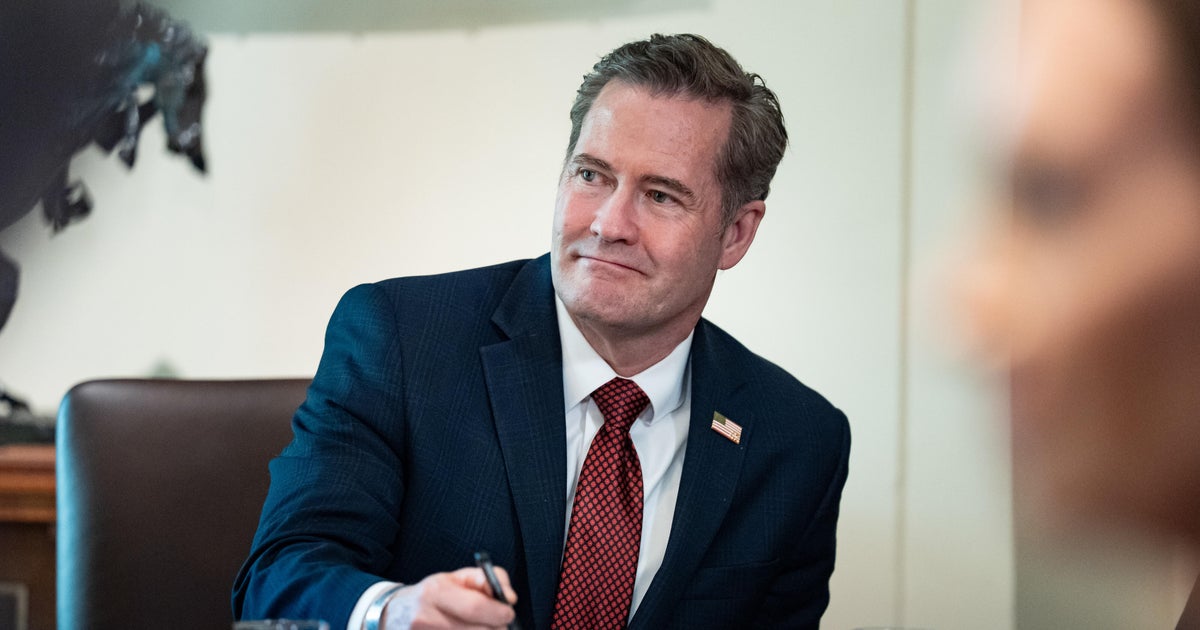In a significant reshuffle at the White House, President Donald Trump has orchestrated a new career trajectory for National Security Adviser Mike Waltz, moving him from his current role to represent the United States at the United Nations. This decision came after days of deliberation and strategic planning within Trump’s administration, marking just over 100 days since Waltz assumed his position in the administration.
The decision to reposition Waltz was confirmed through various sources close to the matter who spoke with CBS News. According to these sources, intense discussions took place regarding Waltz’s future role under the guidance of Susie Wiles, the Chief of Staff. The deliberations led to presenting Waltz with several prestigious options, including multiple ambassadorships, notably the ambassador to Saudi Arabia, which has been considered a key strategic role given the country’s significant influence in Middle Eastern politics and its status as a major global oil producer.
Waltz, after considering his options, opted to serve as the U.S. Ambassador to the United Nations. The official announcement of this new assignment was made by Trump himself via a social media post. This announcement came hours after initial reports surfaced about Waltz’s impending departure from the role of National Security Adviser.
Sources indicated that Friday was set to be Waltz’s last day in the White House. Meanwhile, the transition of duties was already being managed, with Secretary of State Marco Rubio stepping up to fill the dual roles as the interim National Security Adviser along with his ongoing responsibilities as America’s top diplomat. Reports suggest that Rubio and Waltz met on Thursday to initiate the handoff process.
Within the National Security Council, a shift was also anticipated with Alex Wong, Waltz’s deputy, expected to depart. However, as of the latest updates, Wong was still engaged and assisting with the transition process. This indicates a possible retention of Wong until a smoother handover of responsibilities is achieved.
The role of the U.S. ambassador to Saudi Arabia is particularly pivotal. President Trump, known for his diligent selection process for such key positions, had been seeking advice from a number of his close advisors including Jared Kushner, his son-in-law and former senior White House adviser. Trump’s focus on Saudi Arabia is not just due to its oil riches but also because of its leading role in global economic dynamics and as the world’s largest purchaser of U.S.-made armaments.
In terms of broader geopolitics, President Trump previously visited Saudi Arabia during his first overseas trip as president in 2017, signaling the importance of U.S.-Saudi relations. Moreover, Trump aimed to rope Saudi Arabia into the Abraham Accords, a series of normalization agreements between Israel and several Arab states crafted during Trump’s term, which aimed to reshape Middle Eastern geopolitics.
The ongoing complex relations in the Middle East, especially the peacemaking efforts involving Israel and its neighboring Arab states, has seen successive U.S. administrations attempting to navigate a path towards peace. This included negotiations to integrate Saudi Arabia in exchange for security guarantees and civil nuclear program benefits, although regional conflicts have often complicated these efforts. Saudi Arabia’s strategic and symbolic significance in such diplomatic endeavors is underscored by its role as the birthplace of Islam and the location of the holy cities of Mecca and Medina.
Previously, during Trump’s first term, retired Army General and CENTCOM commander John Abizaid served as the ambassador to Saudi Arabia. Saudi Arabia’s position on facilitating a future Palestinian state indicates its pivotal role in any substantive agreement or paths to peace in the Middle Eastern region.
The rearrangement within Trump’s national security team and diplomatic assignments highlights the administration’s ongoing efforts in shaping foreign policy and addressing global challenges through strategic appointments and diplomatic engagements. As these transitions unfold, the implications for U.S. foreign policy and its execution on the global stage remain a subject of significant interest and analysis.









